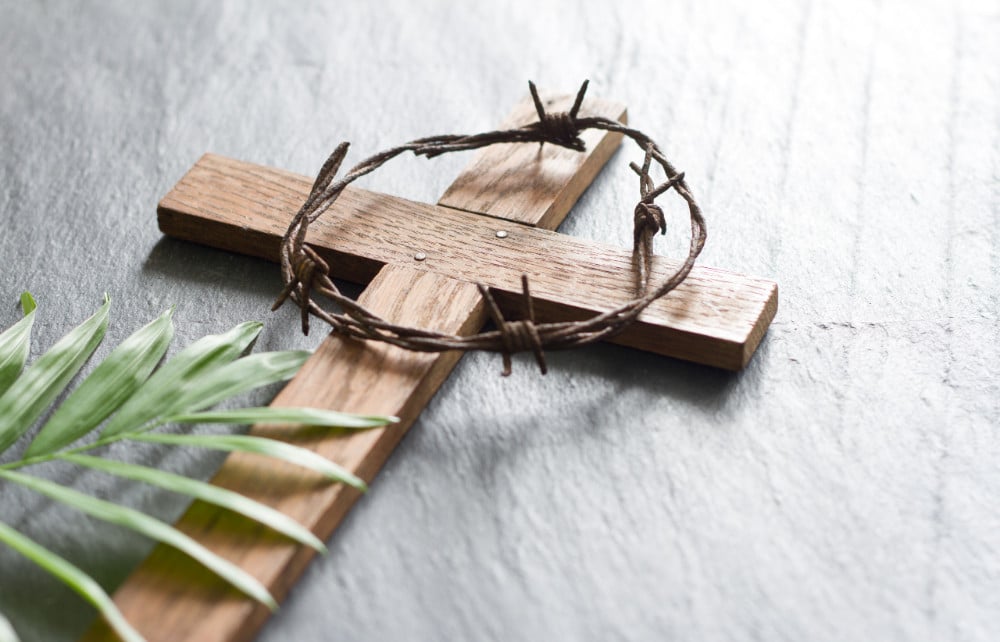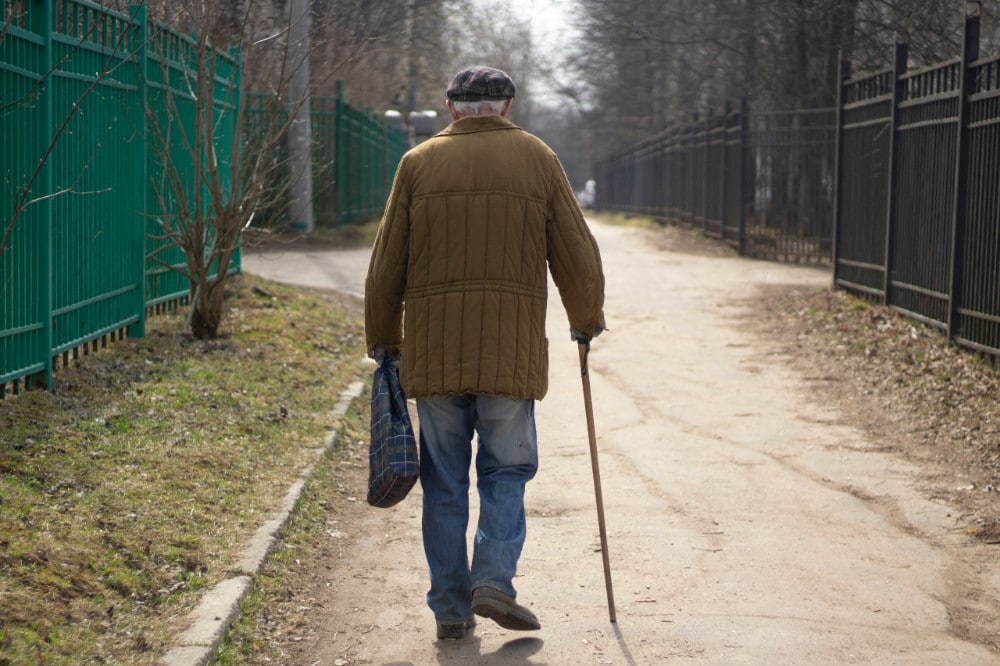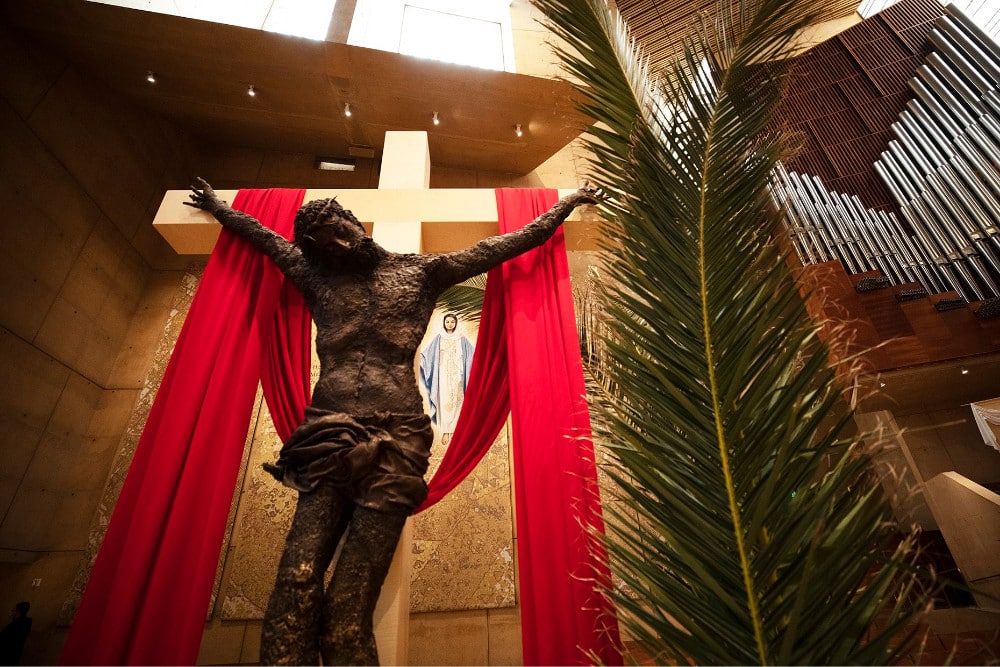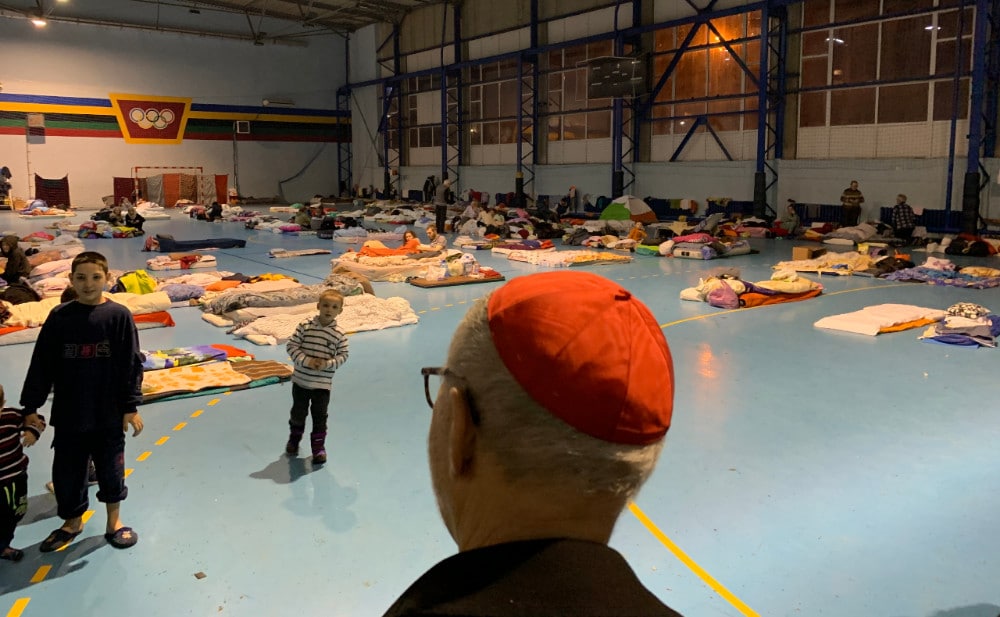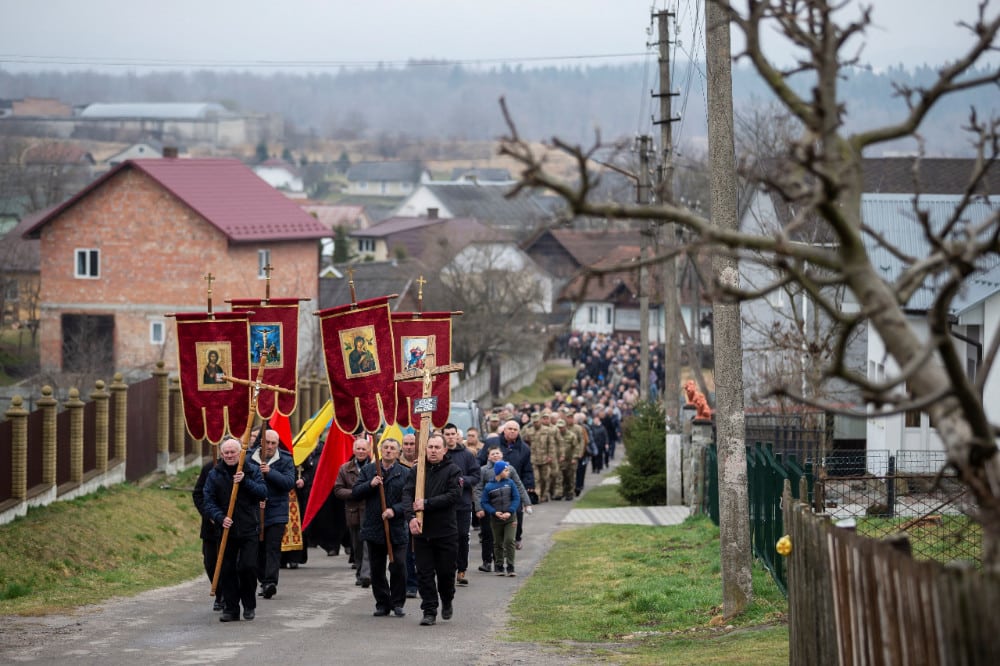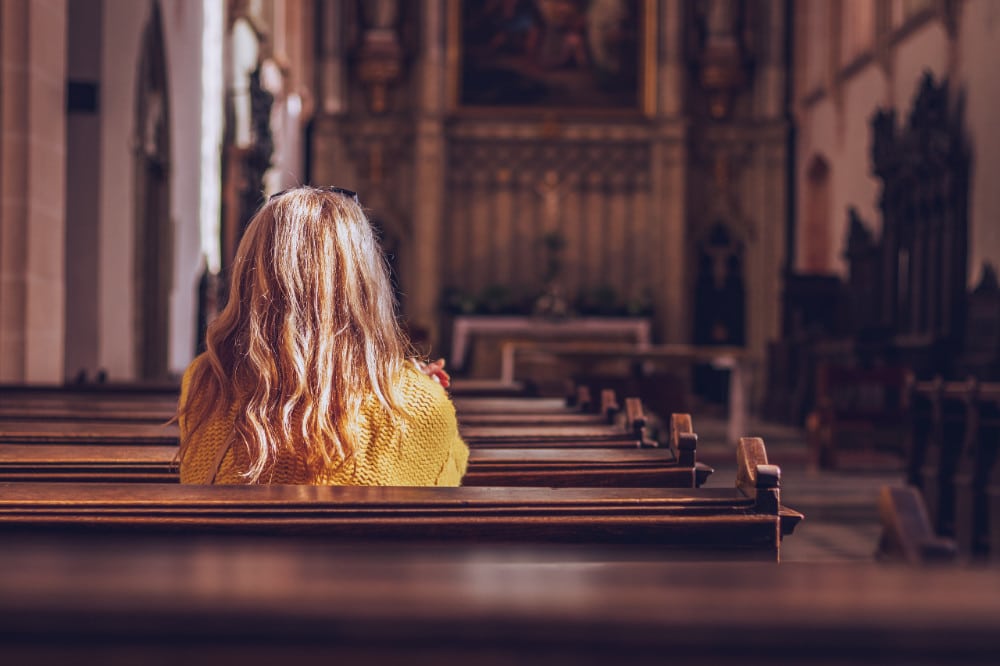On Palm Sunday, as the Church marks the beginning of Holy Week, we will once again hear the Gospel account of Jesus Christ’s passion and death — how he was betrayed by Judas, condemned by the crowd, whipped, mocked, crowned with thorns, forced to carry his cross and crucified. As the Gospel is read, we can see in our mind’s eye the violence being done to our sinless and merciful Lord.
While the reenactment on Palm Sunday is difficult to hear, we must listen, because we, too, bear responsibility. It is for our sins that Christ died. We scourge him at the pillar; we lash him with whips; we mock him and betray him; we crown him with thorns and drive the nails through his hands.
As he hangs on the cross upon which we have placed him, Jesus responds to our unimaginable torture and cruelty with unimaginable mercy and love, saying, “Father, forgive them, they know not what they do” (Lk 23:34).
On March 25, with the world watching and waiting for Pope Francis to consecrate Russia and Ukraine to the Immaculate Heart of Mary, the Holy Father delivered a remarkable and profound homily during a penance service at the Vatican on the Sacrament of Reconciliation and God’s desire to dispense his endless mercy to us. It was a powerful reminder that God is active in our lives and desires us to trust in him.
“All too often, we think that confession is about going to God with dejected looks,” Pope Francis said. “Yet it is not so much that we go to the Lord, but that he comes to us, to fill us with his grace, to fill us with his joy. Our confession gives the Father the joy of raising us up once more. It is not so much about our sins as about his forgiveness. Our sins are present, but the forgiveness of God is always at the heart of our confession. Think about it: If our sins were at the heart of the sacrament, almost everything would depend on us, on our repentance, our efforts, our resolves. Far from it. The sacrament is about God, who liberates us and puts us back on our feet.
“Let us recognize once more the primacy of grace and ask for the gift to realize that reconciliation is not primarily our drawing near to God, but his embrace that enfolds, astonishes and overwhelms us. The Lord enters our home, as he did that of Mary in Nazareth, and brings us unexpected amazement and joy — the joy of forgiveness. Let us first look at things from God’s perspective, then we will rediscover our love for Confession. We need this, for every interior rebirth, every spiritual renewal, starts there, from God’s forgiveness. May we not neglect reconciliation, but rediscover it as the sacrament of joy. Yes, the sacrament of joy, for our shame for our sins becomes the occasion for an experience of the warm embrace of the Father, the gentle strength of Jesus who heals us, and the ‘maternal tenderness’ of the Holy Spirit. That is the heart of confession.”
As he spoke of the tragic war in Ukraine during the act of consecration, Pope Francis returned to the necessity of Christ’s forgiveness, saying: “The vicious war that has overtaken so many people, and caused suffering to all, has made each of us fearful and anxious. We sense our helplessness and our inadequacy. We need to be told, ‘Do not be afraid.’ Yet human reassurance is not enough. We need the closeness of God and the certainty of his forgiveness, which alone eliminates evil, disarms resentment and restores peace to our hearts. Let us return to God and to his forgiveness.”
Soon, the Church will celebrate in a special way Christ’s compassion for us on Divine Mercy Sunday (April 24), which was instituted by Pope St. John Paul II during the canonization Mass of St. Faustina Kowalska in 2000. In his homily, John Paul II said: “What will the years ahead bring us? What will man’s future on earth be like? We are not given to know. However, it is certain that in addition to new progress there will unfortunately be no lack of painful experiences. But the light of divine mercy … will illumine the way for the men and women of the third millennium.”
As we seek peace for the people of Ukraine and in our own lives, let us begin by allowing Jesus to embrace us in the Sacrament of Confession and commit to praying the Divine Mercy Novena, which begins on Good Friday, April 15, and ends April 23.
Eternal Father, I offer you the body and blood, soul and divinity of your dearly beloved Son, Our Lord, Jesus Christ, in atonement for our sins and those of the whole world. Amen.
Our Sunday Visitor Editorial Board: Gretchen R. Crowe, Scott P. Richert, Scott Warden, York Young

